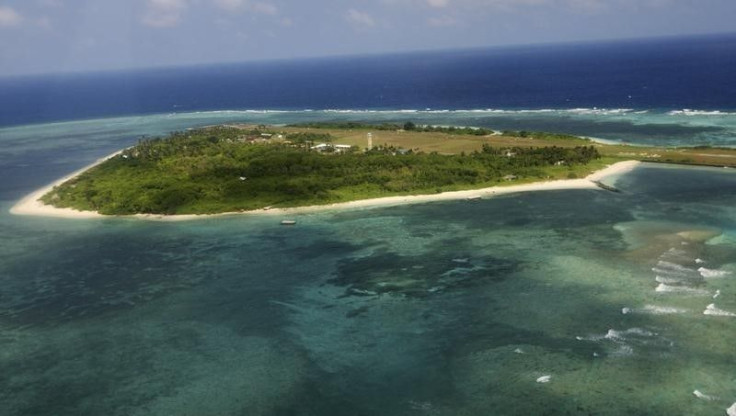US Warship In South China Sea Had 'Evil Intentions,' Says Chinese Navy

Senior Colonel Li Huamin, a spokesperson for China’s People’s Liberation Army’s (PLA) Southern Theatre Command, said on Tuesday that a United States warship had “made deliberate provocations, harboring evil intentions, during China’s traditional new year festival, in a naked act of navigational hegemony.”
The warship with the alleged wicked objectives was the USS Montgomery, a littoral (designed for regions lying along a shore), relatively small surface vessel. It passed by the disputed Spratly Islands in the South China Sea on Saturday.
According to Colonel Li, their military sent air and sea patrols to “track, monitor, verify and identify” the USS Montgomery when it sailed through the island chain. He said China claimed “indisputable” sovereignty over the South China Sea and its islands, and no matter what “tricks and provocations” the U.S. made, they were a waste of effort.
Li added that the PLA’s Southern Theatre Command would “maintain high alert and take all the necessary measures” to protect China’s sovereignty in response to the American vessel’s presence.
The Spratly Islands are located west of Palawan of the Philippine Islands. Aside from China and the Philippines, Vietnam, Brunei, and Taiwan all have conflicting claims on them.
In 2016 the United Nations Permanent Court of Appeals (PCA) arbitral ruling favored the Philippines over China’s claim of sovereignty but China continues to disregard the ruling and encroach on the other countries’ exclusive economic zones (EEZs)
The U.S. Navy routinely conducts what it calls “freedom of navigation” operations in the Asian waters and near the Spratly Islands to “assert navigational rights and freedoms” consistent with international law”, according to 7th Fleet spokesman Lieutenant Joe Keiley to the Japan Times.
China’s neighbors have responded in different ways to Chinese presence in their waterways. Vietnam has worked with the U.S. to counter Chinese military actions. U.S. Defense Secretary Mark Esper recently visited Vietnam, where he denounced China saying, “We will not accept attempts to assert unlawful maritime claims at the expense of law-abiding nations.”
Late last year, Vietnam’s armed forces released a white paper that said Hanoi would “consider developing necessary, appropriate defense and military relations with other countries”.
Indonesia has its own island chain, the Natuna Islands, that the Chinese covet. They responded to three Chinese coastguard vessels spotted in the area by sending warplanes and ships to patrol the contested islands.
Philippine President Rodrigo Duterte has taken a warm stance toward China, allowing them to roam the Philippine waters with little resistance and not enforcing the hard-fought PCA ruling. Last month a Chinese coastguard vessel made a “friendly visit” to Manila and other Southeast Asian nations might get a similar visit soon.
It remains to be seen if the American presence, with no territorial claims in the waters, has any “evil intentions” or not. That will depend a lot on China’s intentions.
© Copyright IBTimes 2025. All rights reserved.




















